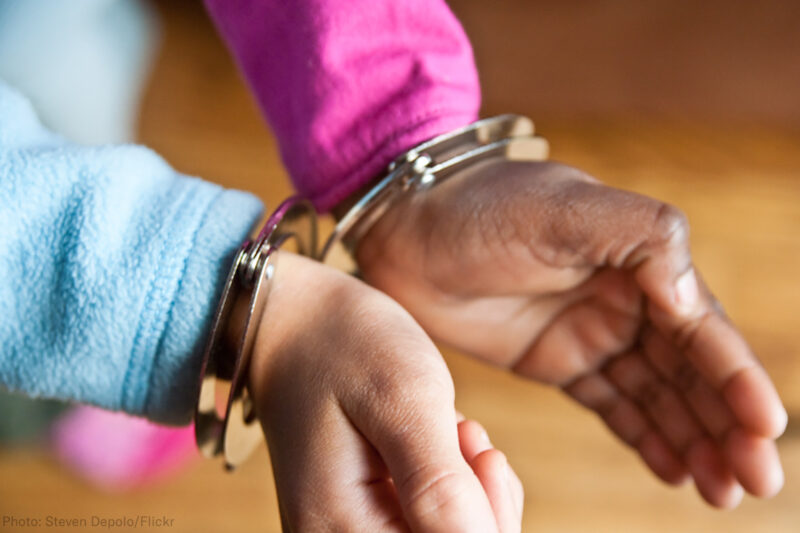South Carolina Legislature Repeals Racist ‘Disturbing School’ Law for Students


In 2015, video surfaced of a police officer violently dragging a Black girl from her school desk. He was arresting her, and using shockingly excessive force, because she was “disturbing school,” a vague law that more or less made it a crime for a student to be loud, to talk back to staff or school police. In other words, it criminalized being a kid.
Unsurprisingly, this law has disproportionately affected students of color, who are already over-policed outside the school walls, so we sued in August 2016. Last week, we scored a victory on behalf of all students who have been pulled into the maze of the state’s criminal justice system.
On Thursday, South Carolina Gov. Henry McMaster repealing the crime of disturbing schools for students in the state of South Carolina. The importance of this law being signed cannot be understated. Its passage will eliminate a major source of the school-to-prison pipeline, which has caused grievous and lifelong harm to students across South Carolina.
In addition to the immediate harms of being arrested and subjected to the criminal justice system, students are also subject to more severe discipline that can include expulsion or assignment to alternative programs that fail to provide a pathway to graduation. Stigma and further disconnect from school are also likely to follow, increasingly jeopardizing school success. And a criminal record alone can close the door to employment, college, and housing opportunities.
When we filed our lawsuit, thousands of youth were arrested each year for things like talking to another student after being sent out of class, cursing in the lunchroom, and even for speaking out against police misconduct. The vague terms of the law, which criminalized youth considered disturbing or obnoxious at school, also allowed for disparate and discriminatory enforcement.
Our review found that across the state, Black youth were nearly four times as likely as their white classmates to be deemed criminally disturbing school. In Charleston, Black youth were a staggering six times more likely to be charged with the offense, and disturbing school was the number one reason youth entered the juvenile justice system.
Sadly yet unsurprisingly, the circumstances in South Carolina are consistent with those found in many other jurisdictions. , Black youth and students of color, as well as students with disabilities, are more likely to be disciplined and arrested in school. Our culture of mass punishment that starts in schools is partly to blame. The law’s wording itself is also partly to blame. Disparities are more likely to be found when an offense is defined using subjective terms, allowing implicit bias to creep in and be weaponized by the Orwellian-named “school resource officers,” who are nothing more than cops in school.
In South Carolina and elsewhere, the impacts are devastating for youth. For example, when children are pushed into the juvenile justice system from school, they are less likely to graduate and more likely to have future involvement with the criminal justice system. Fortunately, research on adolescent development has led to the creation of many school-based approaches to youth behavior that are more effective for both schools and children.
In the year after we filed our lawsuit, the Department of Juvenile Justice reported a in disturbing schools arrests. Schools, police, and communities were beginning to change their approach to school children. The repeal of the disturbing schools crime for students is a further substantial step in the right direction for South Carolina’s students. We will continue to fight to ensure that no young person is treated as a criminal simply for being a child. No child’s education should be disturbed by racist and backward, and now illegal, “disturbing schools” laws anywhere in this country.

